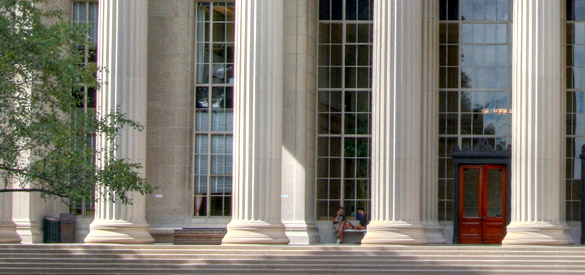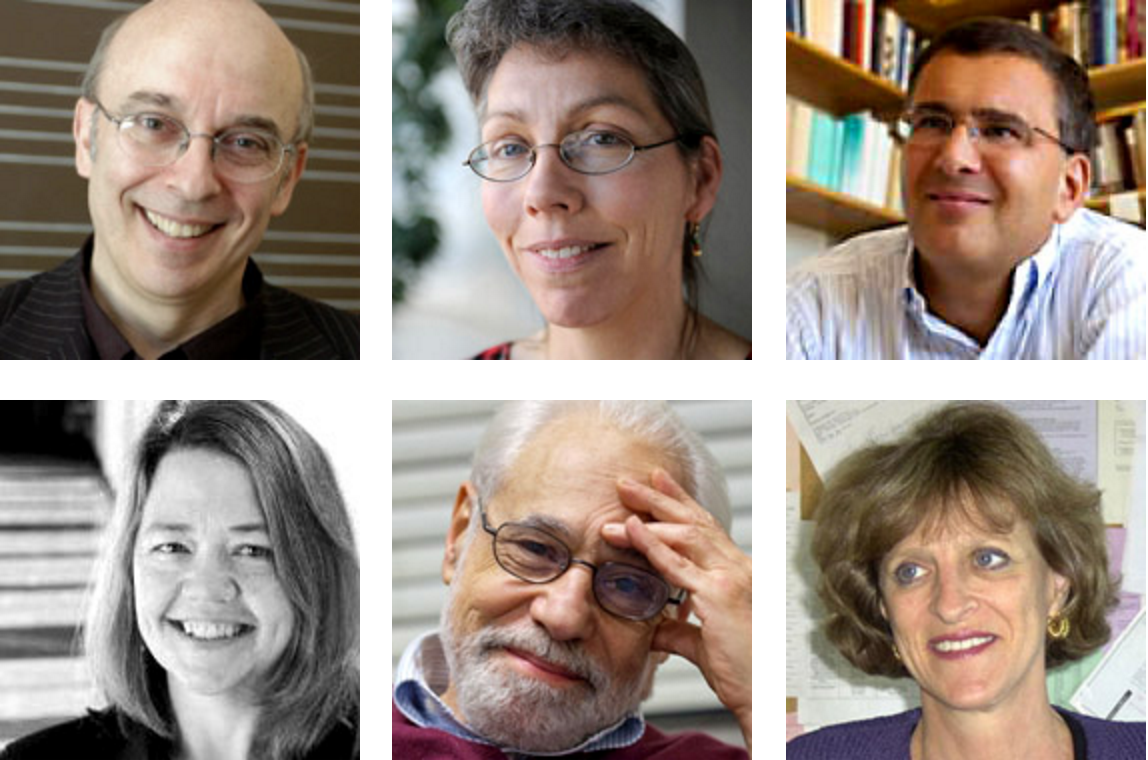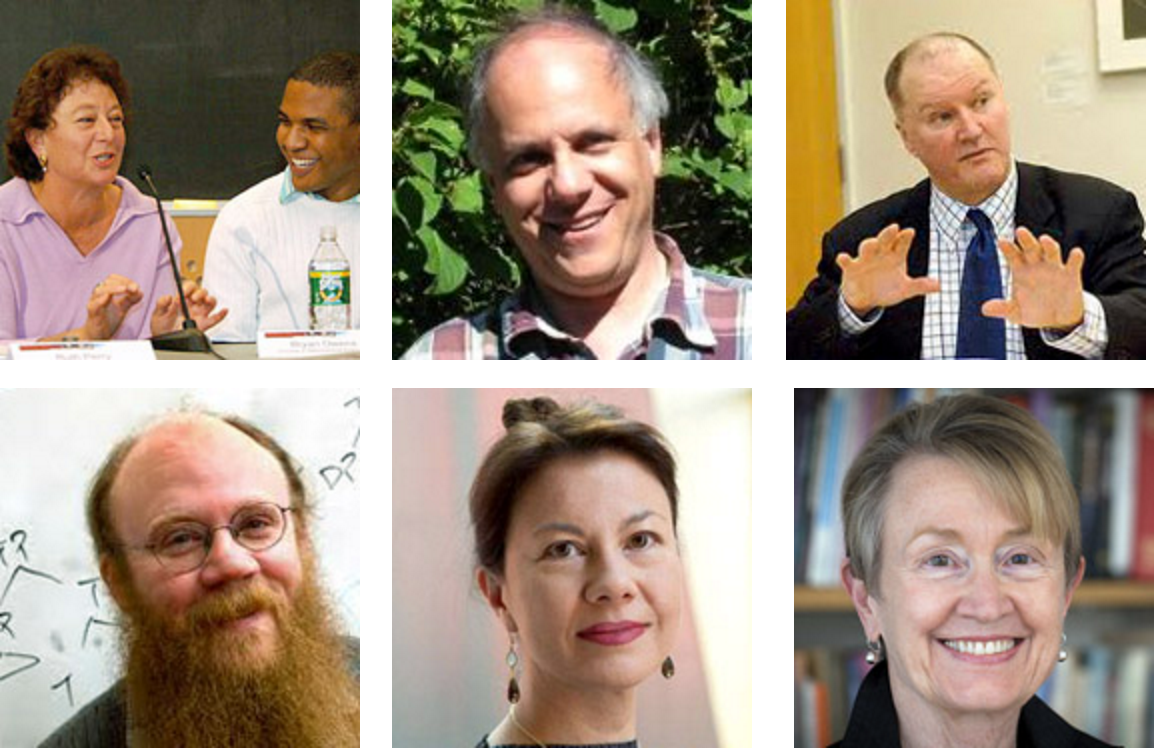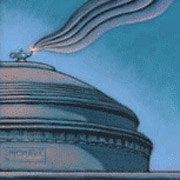"The best part of my job"
The SHASS MacVicar Faculty Fellows reflect on teaching at MIT

Some of the School's finest teachers discuss the significance, the goals—and the sheer fun — of teaching MIT students.
Leadership
MacVicar Faculty Fellow Anne McCants says the rewards of teaching history at MIT can all be summed up in a story that took place about three years ago when a student came by her office and said, “Your class has changed my life.”
The young man had been planning to accept a job as an arms trader for an organization in his home country until he took McCants’ class in medieval economics. ”In class we talked about the consequences of trade for real people, and it raised all these ethical questions in my mind,” he told her. “I turned the job down.”
For McCants, who heads the History section, the meeting was a powerful reminder of how important it is to teach humanities, arts, and social sciences at MIT. “We do have students who are going to be at the forefront of technology and management decisions and if they’ve been in classes where they learn about culture, literature, history—if they’ve had these experiences, it really can change the way they proceed and the way they lead companies,” she says.
Related
Three SHASS professors named 2019 MacVicar Faculty Fellows
Angrist, Jones, and Tyalor are awarded the Institute's highest undergraduate teaching honor.
Arthur Bahr, associated professor of Literature, named 2015 MacVicar Fauclty Fellow
Emma Teng, professor of Asian Civilizations, named 2013 MacVicar Faculty Fellow
Three SHASS professors named 2012 MacVicar Faculty Fellows
Broadhead, Kaiser, and Rose are awarded the Institute’s highest undergraduate teaching honor.
About
The MacVicar Faculty Fellow award is the Institute's highest undergraduate teaching honor. The Fellows, who are selected on the basis of merit through an annual nomination process, and appointed by the Provost upon the recommendation of an Advisory Committee composed of faculty and two current MIT undergraduates. Fellows are appointed for a 10-year term and receive discretionary funds for educational activities, research, travel, and other scholarly expenses.
Creativity
“We cultivate not only creativity but an understanding of ways to be creative in situations where there might not be a right answer,” says Peter Child, Class of 1949 Professor of Music and a 2003 MacVicar Fellow. “As our students learn about ambiguity, they can achieve success through creative thinking when answers are not definite.”
Including McCants and Child, MIT SHASS is home to 11 current and 7 former MacVicar Faculty Fellows—professors honored for “exemplary and sustained contributions to the teaching and education of undergraduates at the Institute.” They teach subjects as diverse as musical analysis and microeconomics, and they all share two qualities: a passion for scholarship and an extraordinary devotion to students.
“I love MIT students. I love how disciplined they are, how willing to work,” says Ruth Perry, the Ann F. Friedlaender Professor of Literature and a 2005 MacVicar Faculty Fellow. “They all appreciate intellectual stimulation. All you have to do is show them the intellectual delights, and you have them.”

Peter Child, Anne McCants, Jonathan Gruber, Diana Henderson, David Thorburn, Isabelle de Courtivron
Meet the MacVicars
Gallery of the MacVicar Faculty Fellows
of the MIT School of Humanities, Arts, and Social sciences
Meaning
The MacVicar Fellows agree that by engaging with the School’s disciplines, MIT students gain cultural and historical perspective, critical thinking and communication skills, and discernment about their own values.
“Literature classes are about understanding what’s meaningful,” Perry says. “The major texts we teach all help us think about what it means to be human.”
MIT's undergraduate economics classes help students make the most of limited resources—a ubiquitous problem, according to Jonathan Gruber, Professor of Economics and 2007 MacVicar Fellow. “Economics is primarily about the decisions we all make every day—whether it’s buying a second or third edition of a textbook or whether or not to carry an umbrella,” he says.
Economics uses mathematical modeling and a knowledge and and analysis of human behavior. “MIT students tend to like certainty and right answers," Gruber observes. "We help them learn how to think about the ambiguity and uncertainty that characterize the world. And," he says, showing his own passion for the field, "if you care about the world, you can’t not care about economics!”

Ruth Perry, David Pesetsky, Stephen Tapscott, Norvin Richards, Emma Teng, Jean Jackson
Meet the MacVicars
Gallery of the MacVicar Faculty Fellows
of the MIT School of Humanities, Arts, and Social sciences
Perspective
MIT students certainly do care about the world. In fact, their roll-up-your-sleeves-and-change-the-world-attitude is what makes it so critical to study history, McCants says. “People know that history is important—they cite it all the time," she notes. "The problem is that often what they know isn’t very accurate. And so decisions are often uninformed, because people have got the facts about history, about what really happened, wrong. Part of the MIT SHASS mission is to give students a strong grounding, historically and culturally, and help them gain the critical thinking skills they need to take on whatever challenges lie ahead.
“If you think about crises—of population, energy, the climate, poverty, the environment—meeting the really big crises requires a subtle and broad perspective," Child says. “Take AIDS, for example. The cure will be biomedical. But, understanding the nature of the epidemic—which contributes to the cure—requires the social sciences, an understanding of how people live, and it requires compassion."
The School’s finest teachers all agree that there are benefits to teaching humanities, arts, and social sciences to students whose principal focus may be science or engineering. "You get to open up whole new vistas for them," says McCants. And, since MIT students are multi-talented, they often excel in more than one field. “We always have brilliant student musicians," says Child, "students who, if they chose to focus on music could be at the top of the game."
Joy
Cultivating those passions and interests through “exceptional instruction and innovation in education” is what has earned a wide range of the School’s faculty members the MacVicar Award—an honor bestowed on just a handful of professors each year following a rigorous selection process that includes evaluating input from both students and colleagues.
“The MacVicar Award makes a really significant statement about valuing good teaching—elevating teaching among other professional accomplishments,” Child says. “It’s something to live up to.”
MacVicar Faculty Fellows each receive $10,000 per year for 10 years. McCants, like many of her colleagues, says she “squanders” her award money on her students—treating them to dinner and buying books.
“Teaching is the most fun I have all week," says McCants, "just to be able to spend a couple hours a week with smart people who are interested in ideas. It’s really the best part of my job."
That sentiment is echoed by other MacVicar Fellows, master teachers who find a deep reward in the classroom. “Teaching literature to MIT students and being taught by them has nourished my soul for 35 years," says David Thorburn, Professor of Literature and Comparative Media.
“You see students light up," says Perry. "The words of the poems and stories crystallize—or clarify—what our students think and feel. And they take pleasure in the language. What is the point of life after all?”

Suggested Links
Meet the MacVicars
Gallery of the MacVicar Faculty Fellows
of the MIT School of Humanities, Arts, and Social sciences
MIT News | 3.16.12 | Four Professors Named 2012 MacVicar Fellows
From SHASS, Broadhead, Kaiser, and Rose are awarded
the Institute’s highest undergraduate teaching honor
Margaret MacVicar Faculty Fellows Program
Together the Fellows form a small academy of scholars
committed to exceptional instruction and innovation in education.
Story by MIT SHASS Communications
Editorial and Design Director: Emily Hiestand
Senior Writer: Kathryn O'Neill
Photographs: Brian Keegan (Building 10); Jon Sachs, Donna Coveney, Richard Howard (and friends and family)